Poets During the Harlem Renaissance: The Poems that Spoke on Their Own
Communication in Male Poems
The poets usage of the litterature provoked serveral thought rising question, answers and gave keen sight of living as a Negro in the United States. Each poet had one or more poems during this time period that created a burst of interest and gained much popularity. These poems can be seen as a form of peaceful communication to their audiences.
Langston Hughes
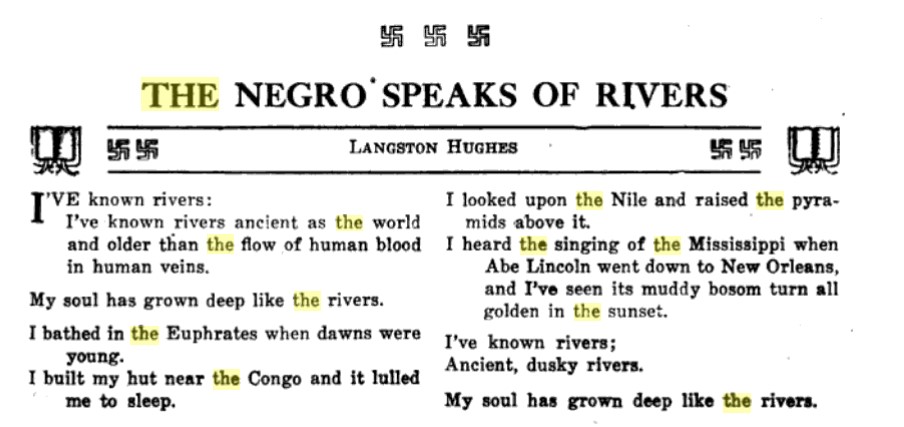
"The Negro Speaks Of Rivers", Langston Hughes, The Crisis Volume 22-24, 1922-1924, Google Books
"The poem argues that the black "soul" has incorporated all of this historical experience, and in the process has become "deep." The poem thus suggests that black cultural identity is continuous, that it stretches across the violence and displacement of slavery to connect with the past—and that black people have made vital, yet often neglected contributions to human civilization".~ LitChart, c. May 2019
"Through the poems with this theme, Hughes was able to keep the past alive so it wasn't forgotten. He wanted Blacks to remember their ancestors and what they went through"~ "Collective Memory in "Aunt Sue's Stories" by Christian Hodson"
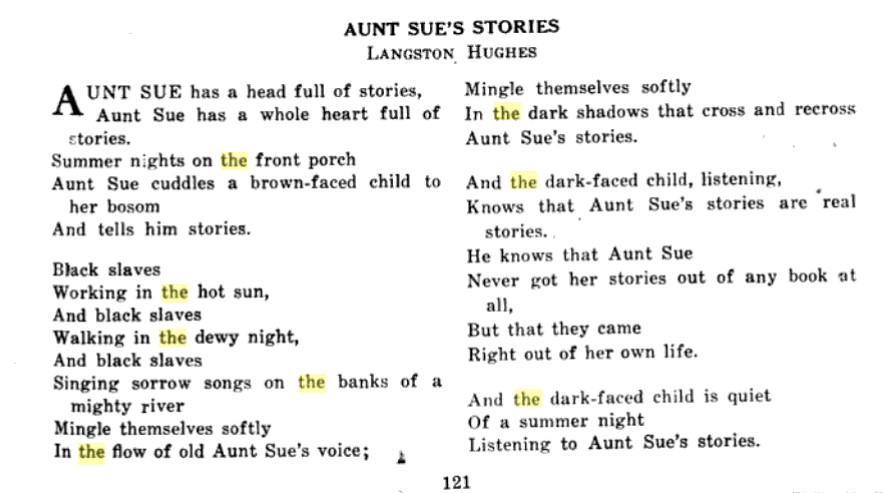
"Aunt Sue's Stories", Langston Hughes, The Crisis Volume 22-24, 1922-1924, Google Books
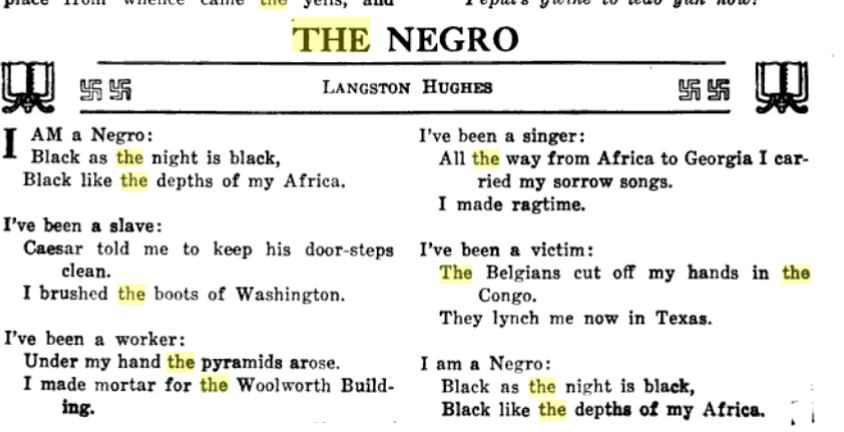
"The Negro", Langston Hughes, The Crisis Volume 22-24, 1922-1924, Google Books
"This peom reflects the history of African Americans and the trials and tribulations they endured in the past and continue to endure in the present" ~ Amanda A., c. decemeber 7, 2007
"Hughes uses many allusions in this poem, alluding to Julius Caeser, George Washington, and the Woolworth Building to show the large role black people played throughout history"~ Amanda A., c. Decemeber 7, 2007
In this poem, Langston Hughes toys with the popular imagery connected to the idyllic South and twists it to explain the complex relationship that many blacks had with their home by juxtaposing the classic idealized imagery besides those of extreme violence, sorrow and rejection" ~ Owlcation C.
"His" people were destined from the day they were born to be subjected to discrimination merely because of skin color. Even though there is hate toward them, they laugh because they won't let this hate conquer them" ~ Literary Review, c. 2010
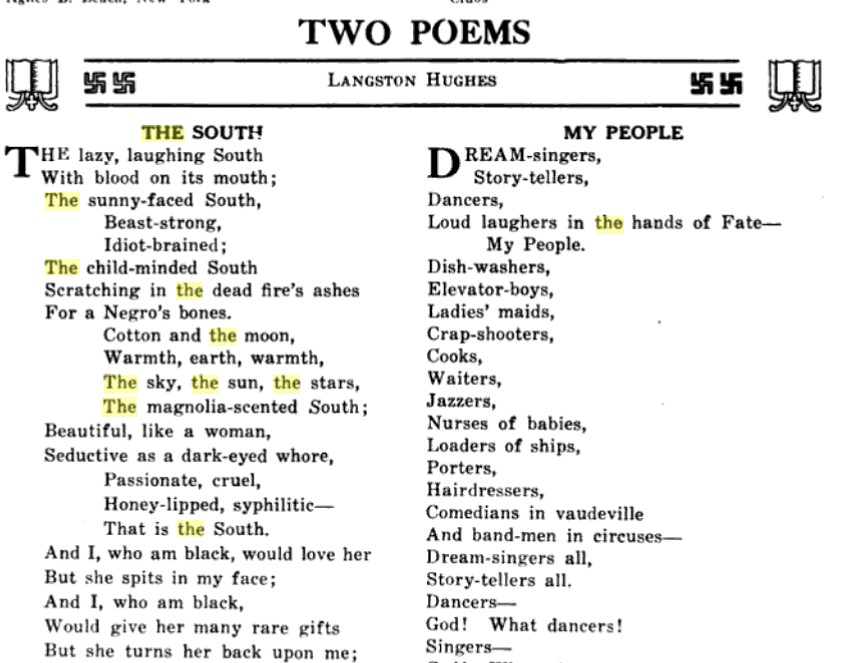

"Two Poems: The South & My People", Langston Hughes, The Crisis Volume 22-24, 1922-1924, Google Books
Countee Cullen

"When I Am Dead", Countee Cullen, Opportunity: A Journal of Negro Life, Volume 1 No. 12, Hathi Trust Digital Library
"This poem makes the reader realize the importance of joy before it is gone. The poem also mentally prepares the reader to the sorrows that are struck after the joyful moments are over" ~ Arts Columbia, "An Analysis Of The Poem If You Should Go By Countee Cullen", c. 2018
Claude Mckay
“If We Must Die” which defended Black rights and threatened retaliation for prejudice and abuse...“it voices also the will of oppressed people of every age who, whatever their race and wherever their region, are fighting with their backs against the wall to win their freedom.”~ Poetry Foundation
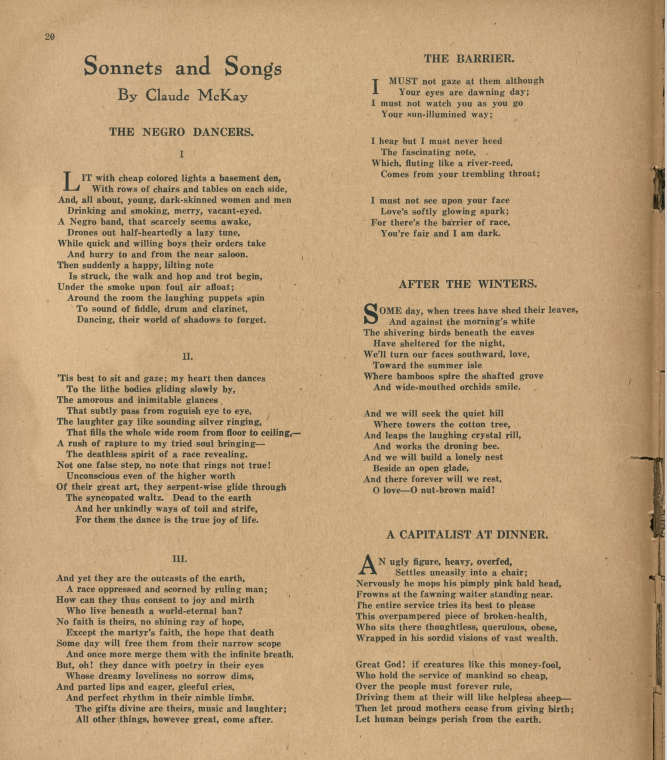
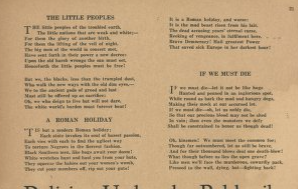
Claude McKay's "Sonnets and Songs", The Liberator July 1919 page 20, NYU Library
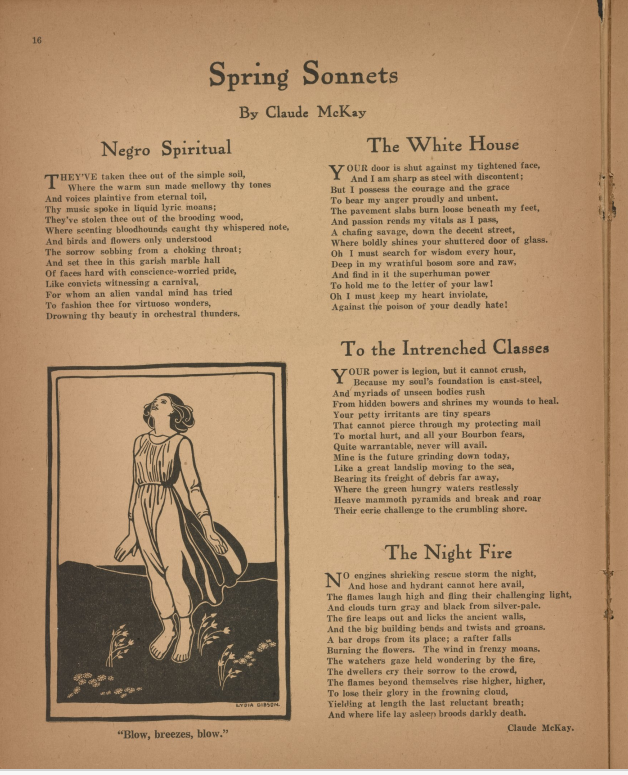
"Spring Sonnets" by Claude McKay, The Liberator May 1922 page 16, NYU Library
"The persona that McKay assumes in “The White House” is a man who has been excluded from the American dream... The fact that this persona has “the courage and the grace/ to bear [his] anger proudly and unbent” demonstrates a classic McKay theme. McKay advocates behaving with poise and composure in the face of segregation and prejudice"~ Harlem Renaissance, c. 2005